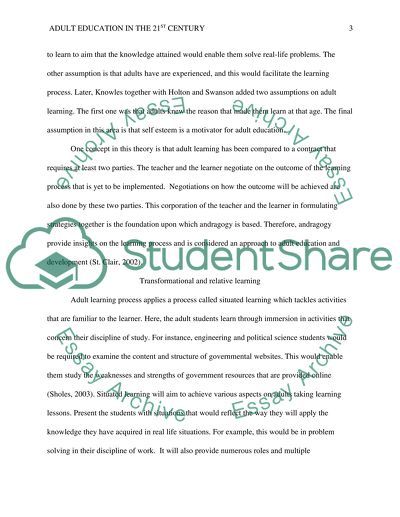Cite this document
(“Adult Education in the 21st Century Essay Example | Topics and Well Written Essays - 1000 words”, n.d.)
Retrieved from https://studentshare.org/education/1443608-adult-education-in-the
Retrieved from https://studentshare.org/education/1443608-adult-education-in-the
(Adult Education in the 21st Century Essay Example | Topics and Well Written Essays - 1000 Words)
https://studentshare.org/education/1443608-adult-education-in-the.
https://studentshare.org/education/1443608-adult-education-in-the.
“Adult Education in the 21st Century Essay Example | Topics and Well Written Essays - 1000 Words”, n.d. https://studentshare.org/education/1443608-adult-education-in-the.


